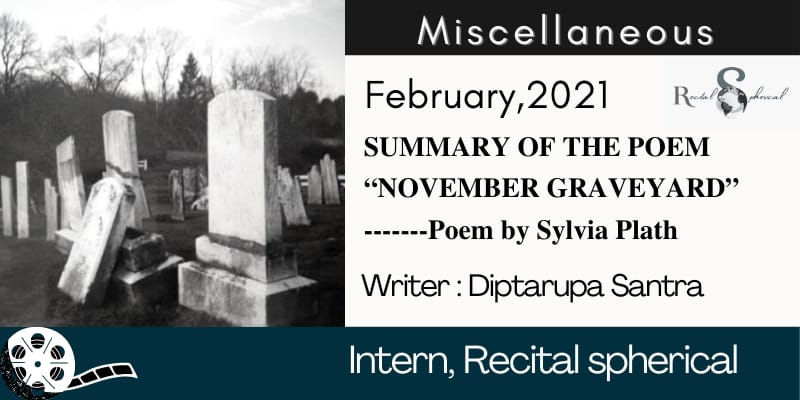Sylvia Plath (1932-1963) is a poet, novelist and short story writer whose troubled life and powerful work remains a source of controversy. Sylvia was born in America but eventually moved to England after she married the poet Ted Hughes. she published her first poem at the age of eight and in the same year the German father Otto died, a trauma which effects in her poetry repeatedly. Plath suffered from bouts of severe depression throughout her life. The first serious breakdown occurred in 1953 and later in 1963 she wrote hard autobiographical novel ‘The Bell Jar’. This episode led to her first suicide attempt. She took her life and was subsequently buried in the same graveyard referred to in the poem, in Heptonstall, Yorkshire.
“November Graveyard”, read by the poet herself in that uniquely unsettling voice of hers. The poem describes the nature and the atmosphere of a cemetery in November and how there is nothing present in in the land beyond the physical.
The poem begins with the speaker stating that the the cemetery is full of trees and grasses which are unwilling to shed there summer leaves and colours. The cling desperately and uselessly to their foliage. Just as the plants attempt to maintain life into the winter, so too does humanity seek something after death. The next to stanzas are used to explain, in impassioned detail, that there is nothing magical about the cemetery. It is clear by the end of the poem that the speaker is set in her opinion about the land. She feels it is only relevant for its physical and “essential parts”.
Diptarupa Santra..
Born on 26th December, 2000..
Residents of Dumdum, Kolkata..
Currently a second year student in the journalism department of Vidyasagar College..




